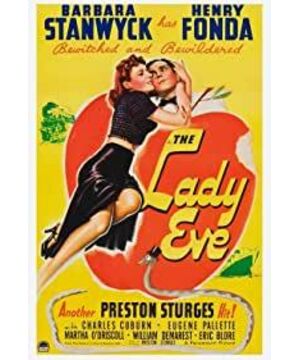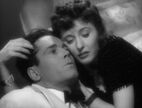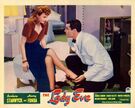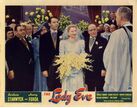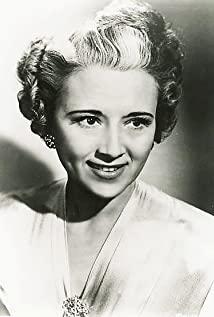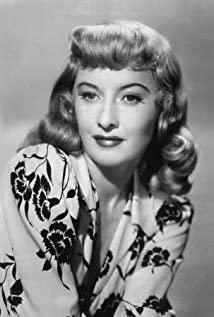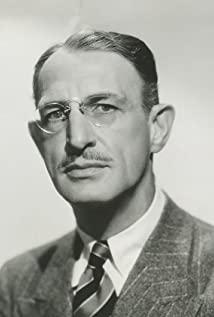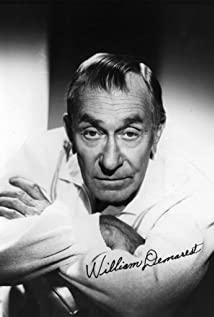THE LADY EVE is Barbara Stanwyck's most remembered and beloved romantic comedy (the same year she also tears into Howard Hawks' BALL OF FIRE with gusto), as an actress with oceanic versatility (from melodrama, film-noir, to horse opera and popular fluff ), she holds sway almost every time on the silver screen, and never let her glamour and feminine appeal deaden her characters' distinctive quirks.
Here, under Preston Sturges' tutelage, Stanwyck is in her plumb best as the con-artist Jean Harrington, traveling with her father “Colonel” Harrington (Coburn), and his partner-in-crime Gerald (Cooper), all three are card sharps, on an ocean liner en route to USA from South America, the trio's latest target is a bachelor named Charles Pike (Fonda), the scion of an American ale empire and an ophiologist by profession, returning from the Amazon after a year-long expedition.
For once, a woman as worldly and astute as Jean, falls for the gauche, open-faced Charles, what is not to like for a straight arrow looking like Henry Fonda in his prime, especially when he is minted and woman-shy, stone -cold smitten by Jean's sophisticated allure, the way she charms him during their canoodling, she fondly musses his hair as if he is a furry family pet while he is dumbfound and ensorcelled by her sweet nothings.
Jean's go-straight-and-get-hitched decision surprises the Colonel, yet, against the grain, he is not in a surly mood to demur the romance, instead he gives them true blessings, but not before making a sucker out of an unsuspecting Charles in card tricks. However, the rub is, a man as strait-laced as Charles, Jean's disreputable line of work might give him pause, especially when he finds out the truth not from her, but a third party (Demarest makes the most of a buffoonish sidekick as Charles' minder), before alighting from the ship, the pair solemnly splits with Jean not resigning from the ill sentiment.
In the second half, Jean reinvents herself as a silk-stocking “Lady Eve Sidwich”, hailed from the other side of the Atlantic, and insinuates herself into Charles' manse, sweeps him off his feet again, here what beggars belief is that Charles must be convinced, although Lady Eve is the spitting image of Jean, they are not the same person, a trick pulls off by Sturges' clever script and Stanwyck's barnstorming élan heightened by a posh British accent, and right after they tie the knot and are on board a train to their honeymoon, Charles is buffeted and appalled by Eve's incessant revelations of her past paramours, revenge is a dish better served cold, but eventually, a screwball comedy needs a happy ending and guess whom Charles will meet next time on an ocean liner?
Nimble-fingered and fleet-footed, THE LADY EVE tactfully retains a chirpy rhythm and high spirits (early on, a special mirror-image contrivance is a hoot) in spite of the jejune premise, Sturges' script buoyantly subverts the conventional concept of Adam and Eve, prompted by a dropping apple (which starts the very first connection between Jean and Charles, with she as the enabler) and Charles' serpentine friend carries he on board, the film is actually a back-to-Eden tall tale that permits Eve to call all the shots while still being adorable, all courtesy to Stanwyck's effortlessly bouncy showmanship that squarely dominates a clueless and tame Fonda, who is burdened with too serious a visage to playact a naive schlemiel prone to pratfalls.
referential entries: Sturges' UNFAITHFULLY YOURS (1948, 7.8/10); Howard Hawks' BALL OF FIRE (1941, 7.5/10).
View more about The Lady Eve reviews


